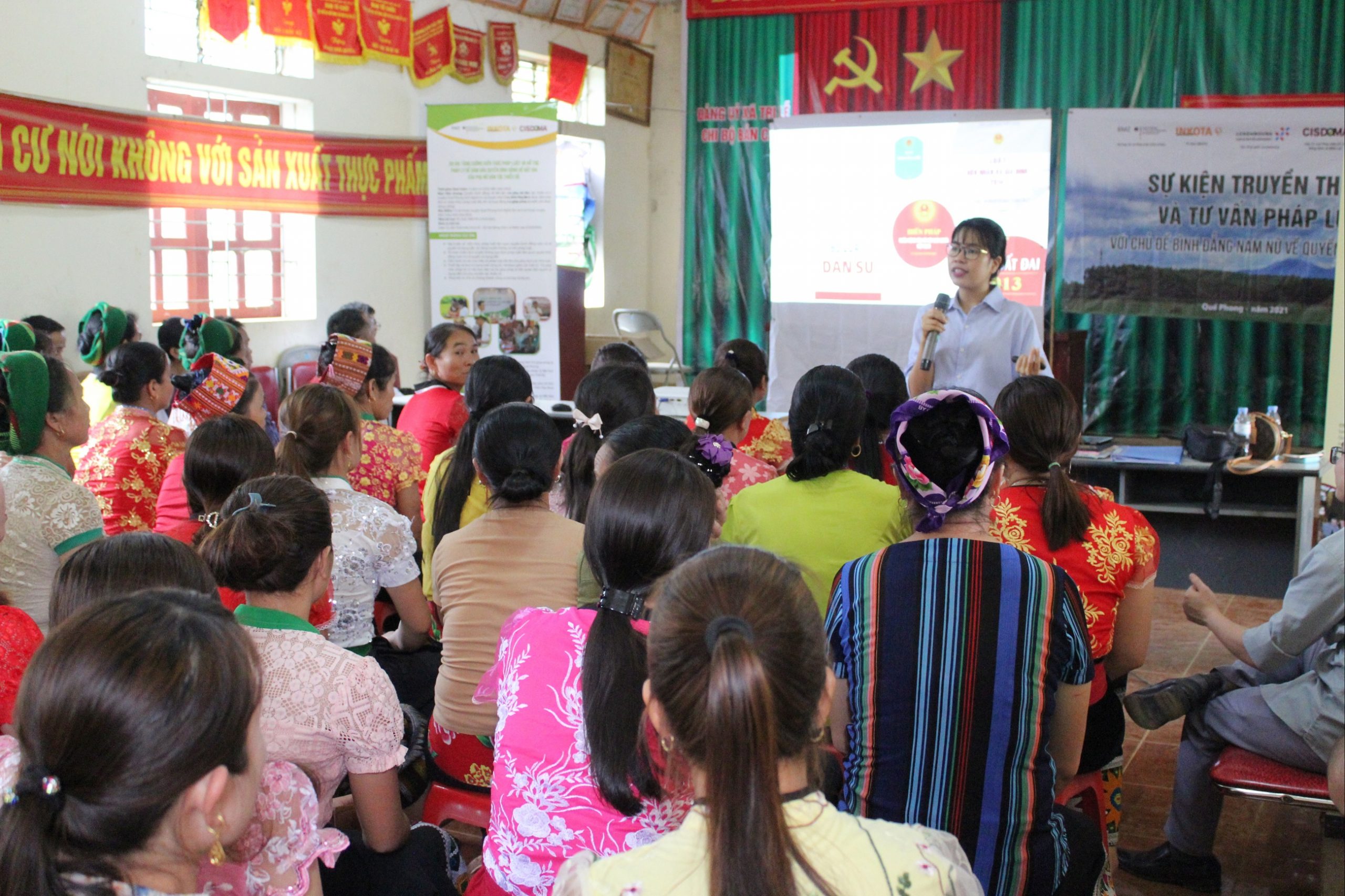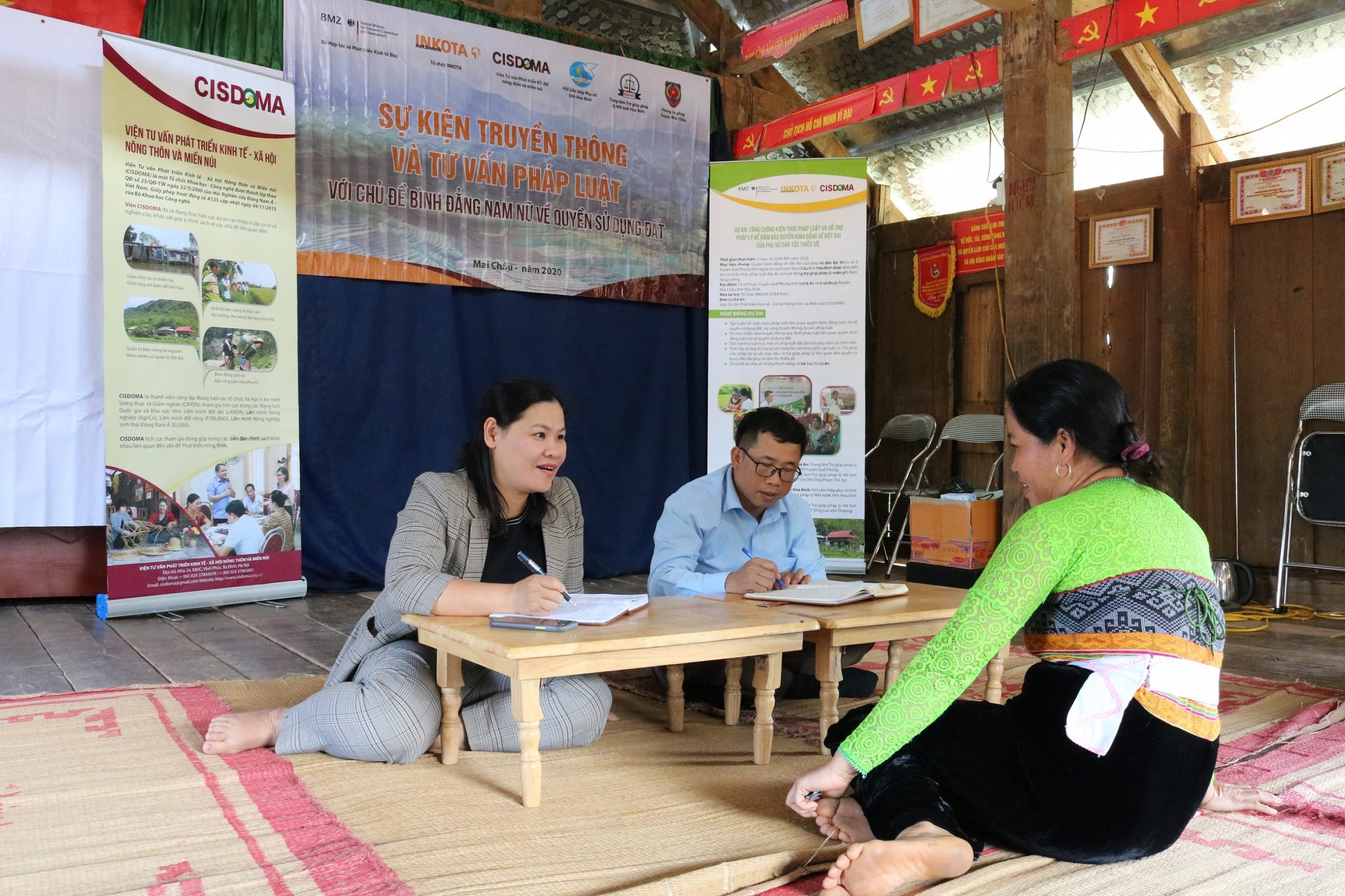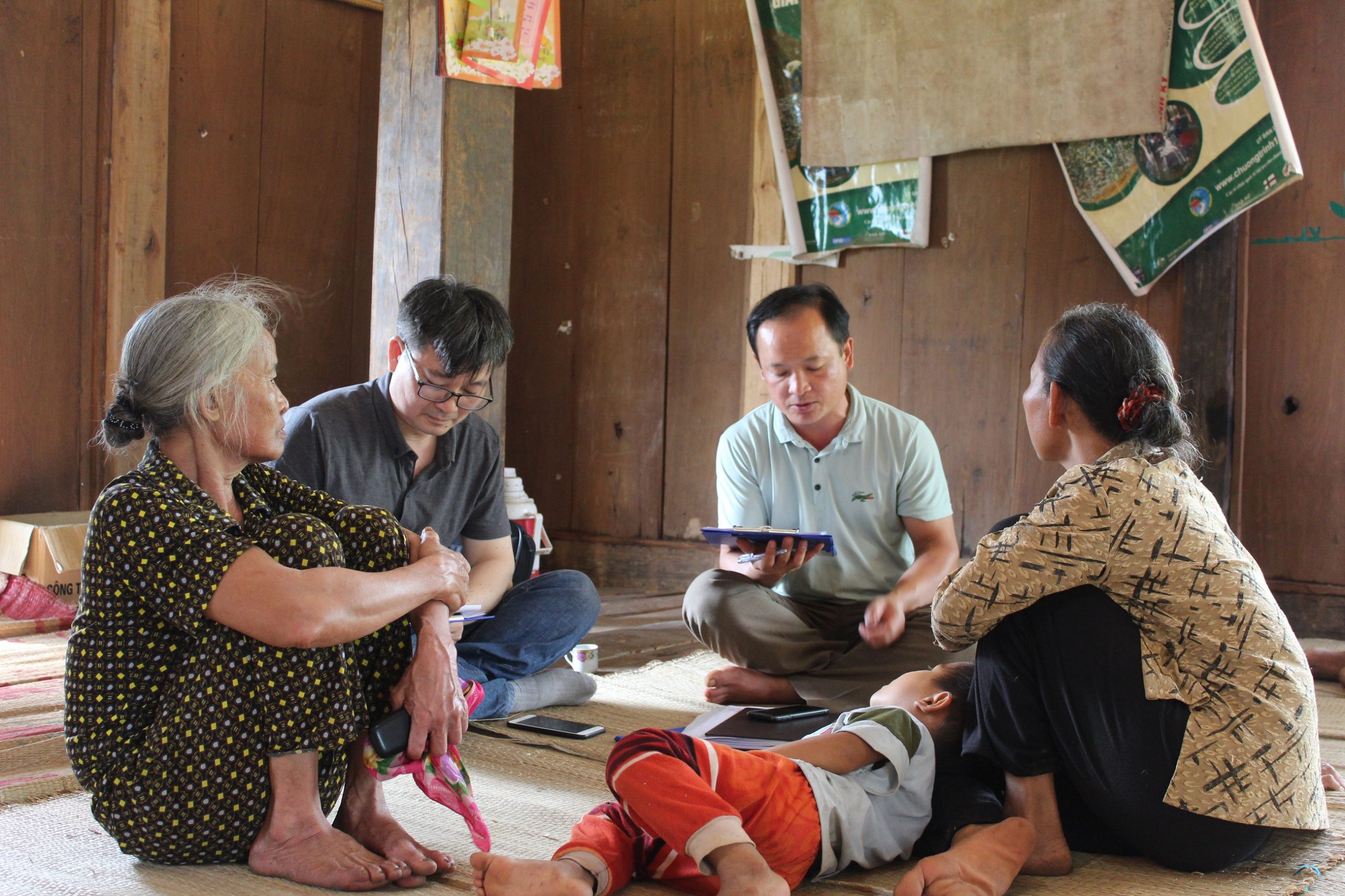Ethnic minority women in Mai Chau and Que Phong Districts have become increasingly aware of their land use rights.
From January 2020 to December 2022, with funding from the INKOTA and Bread for the World (Germany), CISDOMA collaborated with its local partners to implement the project “Enhancing Legal Literacy and Legal Assistant to Ensure Equal Land Rights for Ethnic Minority Women” in Mai Chau District (Hoa Binh Province) and Que Phong District (Nghe An Province). The project was carried out to help enhance awareness of land law and communication and counselling skills for district and commune-level officials. These officials then directly communicated with and counseled the people, especially ethnic minority women. They do counseling at community cultural centers or households, with the support of experts and lawyers from the State Legal Aid Center.
Under the project implementation, 79 communication events on legal regulations regarding gender equality in land use and management were organized in 79 villages, with the participation of 3,781 ethnic minority people (of which 76.3% were women). The ethnic minority people and women who attended the communication events were equipped with knowledge related to the legal regulations on the land use rights and obligations of individuals and households, as well as gender equality in land use and management.
|
Mrs. Bui Thi Uon, an ethnic Muong woman from Panh Hamlet, Bao La Commune, Mai Chau District, expressed: “In the past when a woman got married, they were not entitled to inherit family’s land. After attending the project’s communication and counselling events, I knew that both sons and daughters have equal rights to inherit their parents’ land. Then, I came back home and discussed with my husband requesting the Commune People’s Committee to include both my name and my husband’s name on our LURC.” |
A communication event in Cam Muon commune (Que Phong District) |
After the communication events in the villages, 1,386 people (of whom 49.1% were ethnic minority women, who encountered land-related problems, received consultation on how to resolve these issues. Out of the total cases that received counseling, 59% have been resolved, and 62% of those affected actively contacted authorities to resolve issues related to their land rights. Common concerns among the residents included applying for the issue or re-issuance of LURCs, transferring land use rights due to inheritance, donation, or sales, changing land use purposes, land recovery, land compensation, and land disputes. Of the 1,386 cases that received consultation, 118 cases involved land disputes. Types of disputes included boundary disputes, using land that is registered under someone else’s name, encroachment on boundaries between plots, inheritance disputes over land rights, and disputes over land division after divorce.
|
Statistics show that 119 district and commune-level officials responsible for disseminating and promoting legal awareness and advising on land management have been trained on legal regulations regarding land use and management, communication skills, and direct counseling on land laws. After training, these officials actively participated in communication and provided counseling to local communities within the framework of project activities, applying their knowledge to their work. |
Women in Bao La commune (Mai Chau district) received consultations on their family’s concerns. |
|
Mr. Ha Cong Nhuan, a judicial officer in Bao La Commune, Mai Chau District, shared that he has greatly benefited from the project. Previously, when providing consultations with local people, he was mainly focused on paperwork and the information delivered was somehow superficial, lacking clarity. Now, he feels more confident in explaining and guiding people in resolving their issues. He has learned how to articulate the sequence of explanations effectively, disseminating information more thoroughly. |
Mr. Nhuan (in white shirt) provides consultations to local people at the village cultural house. |
Local officials and specialists affirm that even after the project ends, they will continue to apply methods and approaches provided by the project in annual law dissemination activities within their locality. Mr. Nguyen Ngoc Huy, an officer from the Department of Natural Resources and Environment in Que Phong District, shared that he would continue to utilize the project’s approach in engaging local communities, communication, and counseling skills in the department’s annual legal land dissemination activities in the following years.
To maintain and expand upon the methods and approaches provided by the project, the Department of Justice in Que Phong and Mai Chau, which acts as the permanent coordinating body for legal dissemination and consultation, has recommended incorporating activities related to legal land consultation and communication for women as a key task in the annual Legal Education and Mediation Plan. This initiative aims to achieve standardized legal access at the commune level and will be implemented across all communes within the district.
CISDOMA has collaborated with the People’s Committee of Que Phong District to develop a proposal and mobilize funding from INKOTA to implement the project “Improving Income and Promoting Gender Equality for Ethnic Minorities in Que Phong District, Nghe An Province.” The project is scheduled to be carried out from March 2023 to December 2026.



